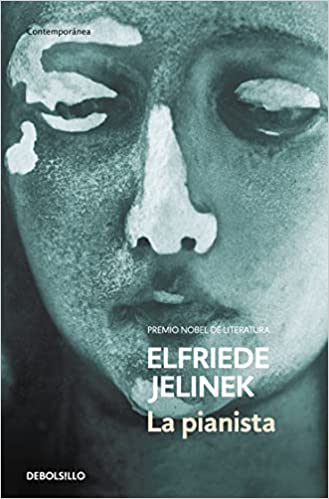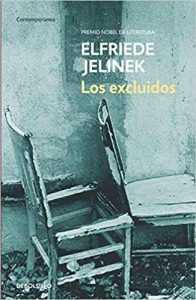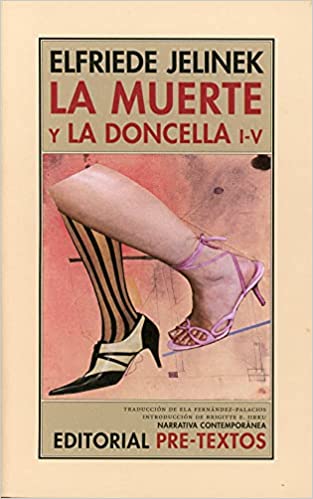Sometimes the Nobel Prize in Literature awards more attitudes, contexts or other unfathomable motives than strictly works. In the case of For JelinekWith an undoubted creativity overflowing with different aspects, her political commitment and her charismatic reach superimposed her as a candidate for the Nobel over the quality of her work.
I do not doubt that sometimes it has to be that way because literature is much more than its black on white. But it is always good to provide a critical vision of the matter not only in the case of Jelinek ... The point is that beyond awards and others, the novelist Jelinek also transmits to her works that personal energy that electrifies emotionally with narratives in the edge of life itself, where passions and conventions wage their particular struggle between fears and guilt as observers of the conflict.
Nor can it be said that the ultimate good of all ends up triumphing in these stories. And the author does well to do so to fill realism some frames made a clear reflection of releases still pending; of conditions that fix us all; of existences abstracted by moral projections of alienating mediocrity. But the question is to try, succumb to what the soul demands of us and try to cope with it in the best way ...
Elfriede Jelinek's Top 3 Recommended Novels
La pianista
Sometimes it happens, entirely by chance or as an inscrutable fate, that our world contained by the dam of reason is overwhelmed by a coming of unexpected passions that rush with the thaw in spring, when no passion that is entirely certain can be controlled. under any will.
Erika is a frustrated pianist who teaches piano and has always lived under the shadow of a possessive and absorbing mother. Overcome by a failure that is but a transcript of a greater defeat, that of escaping from an unwanted domain, and caught in the web of her inhibitions and perpetual vigilance, Erika has learned to be austere and severe.
This situation takes a very different course when she meets a student who falls in love with her. Then, through his fragile psychology, his tortuous inexperience in human relationships, the cradled and unsaid fantasies begin to make their way, in which dominance and subordination, pleasure and suffering are mixed.
The excluded
The scenario varies but the notion of that youth that is always left helpless is disconcerting because it always happens. Whether in Austria after the Second World War or in any other European country in the XNUMXst century. If perhaps this story becomes more crude due to the sinister legacy of living in the post-war period, where everything still seems permitted, where violence still meets indolence as a general response...
This story denounces the difficulty of the unapologetic life of postwar Austria, eager to ignore the crimes of Nazism. It is about three high school students and an ambitious working-class boy who assault passersby to rob them. To the determination of a society determined to forget the past and in which social triumph becomes the supreme value, the four adolescents respond with disgust and hatred.
It is a novel in which the sarcastic look of Elfriede Jelinek is revealed. Through a style between torrential and distant, and without making any moral judgment, the writer portrays the perverse daily life of violence and the social values to use.
Death and the maiden
A volume of protest spirit in feminine. Only that Jelinek recovers imaginary, common places, paradigms inserted since childhood. Everything is duly dissected to address the most necessary moral surgery, the most precise incisions in the conscience in the face of a necessary evolution.
Shakespearean king dramas seem to have found a kind of counterpoint in those of Jelinekian princesses. Even when, as Elfriede Jelinek emphasizes, the woman cannot be constituted as a dramatic subject, that is, as a protagonist in the classical sense, there is Snow White, nevertheless, searching for the truth behind beauty, beyond the mountains. , with the seven dwarfs, to end up finding death in the figure of a hunter.
Sleeping Beauty, in search of herself, will only find a prince, who from that moment will consider himself her god and resurrector. Rosamunda experiences the incompatibility of being a woman and at the same time a thinker, a writer. Jackie (Kennedy) will outlive men, power and Marylin (Monroe) herself, but her triumph will only be apparent. Sylvia (Plath) and Inge (Bachmann), modern icons of feminine writing, will despair at their outright ineptitude.
The princesses and prominent ladies of the Nobel Prize winner Elfriede Jelinek appear to us as replicas that no prince can redeem. In these five dramatic pieces the author stages an ironic game with the images that the male vision designs of "woman." And she reveals in the same self-ironic impulse her subordination to the images he generated.



